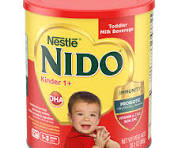[ad_1]
Angela Onwuzoo
A professor of haematology and transfusion medicine at the College of Medicine, University of Lagos, Sulaimon Akanmu, has said that those who donate blood regularly do not suffer from iron-excess-related disorders which make people age faster.
According to the haematologist, regular blood donation at least twice a year rather enhances lifespan and promotes good health.
He noted that a potential donor should be between 18 and 60 years.
Speaking in an interview with PUNCH Healthwise, Akanmu, who is also a Consultant Haematologist at the Lagos University Teaching Hospital, Idi-Araba, said people should stop thinking that they do not have sufficient blood for themselves let alone for others, stressing that people should stop being afraid to give out their blood.
He said, “People do not believe that they have sufficient blood for themselves. So, they are afraid to give out their blood. People should have the mindset that the donation of blood promotes their health.
“Voluntary blood donation should be twice a year. When it is done over 10 years, they are called volunteer return donors.
“These people have fantastic medical advantages in the sense that they do not suffer from iron-excess-related disorders.
“In a layman’s language, iron-excess-related disorders are chronic disorders that make people age faster when they have excess iron in their body. Regular blood donation, therefore, enhances lifespan.”
He urged Nigerians to volunteer to donate blood and ignore myths about blood donation, adding that the way out of this is a knowledge campaign to the population
Akanmu noted that in the developed world, most blood donors are voluntary, stressing that on their own, people go to blood banks to donate blood freely, which he says was the World Health Organisation standard.
According to him, 100 per cent of blood donations in the developed world are done without money involved.
The don decried Nigeria’s unmet blood needs, saying “the country is faced with huge blood supply deficit far below the WHO’s recommendation.”
The WHO stipulates that at least one per cent of the population must be able or willing to donate blood.
“With a population of 200 million people, we need between two to four million units of blood annually in Nigeria going by the indicators that the WHO had provided for us to meet the transfusion requirement of Nigerians,” he said.
The professor urged relatives of those requiring blood transfusion not to patronise commercial blood donors, warning that commercial donors usually test positive for infectious diseases.
He also stated that the amount of red blood cells in the blood of touts is usually small and not very useful to the recipients.
He said, “Touting is frowned at in blood transfusion service anywhere in the world and it is not the way to go.
“Nigerians must know that paying for people’s blood is not the way to go. The way to go is voluntary blood donation,” he said.
On the importance of obtaining blood from voluntary donors, the blood expert explained that in transfusion service, “the watchword is safety.
“All we want in blood transfusion service is safety. Voluntary blood donors are often gainfully employed and, therefore, do not ask for money before donating their blood.
“Such people usually test negative to infectious diseases. And their blood is usually good because they are not commercialising it. If you screen them and the result is negative, you can trust that result.”
Speaking further on the risks associated with obtaining blood from commercial donors, Akanmu said, “But when you collect blood from touts and you screen the blood and it tests negative, you still do not trust it.
“You don’t have to trust it because these touts get themselves involved in risky behaviours that may make them positive to infectious diseases. And the time of screening for blood donation may be the incubation (latency) period.”
Copyright PUNCH
All rights reserved. This material, and other digital content on this website, may not be reproduced, published, broadcast, rewritten or redistributed in whole or in part without prior express written permission from PUNCH.
Contact: [email protected]
[ad_2]
Source link



